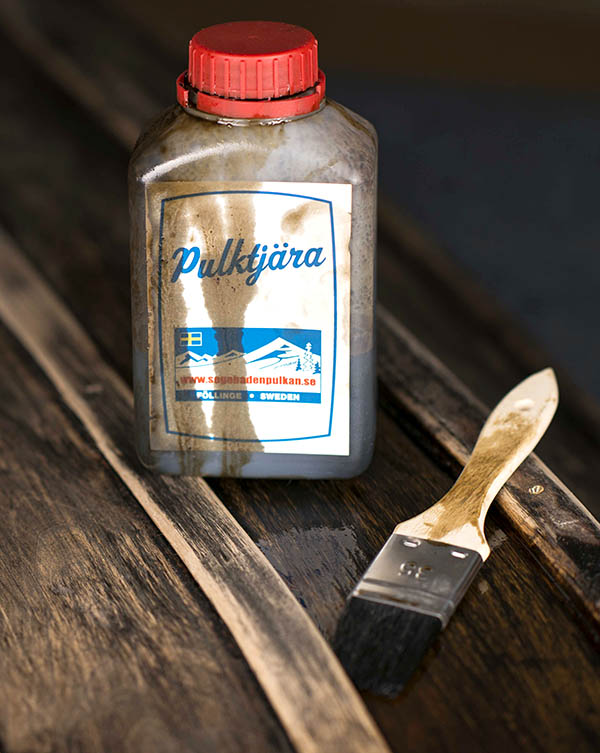
Wood tar, liquid obtained as one of the products of the carbonization, or destructive distillation, of wood. There are two types: hardwood tars, derived from such woods as oak and beech; and resinous tars, derived from pine wood, particularly from resinous stumps and roots. Crude wood tar may be used as fuel or for preserving rope and wood and for caulking. The tar may be fractionated to yield creosote, oils, and pitch.
Hardwood tars are obtained from pyroligneous acid, either as a deposit from the acid or as a residue from the distillation of the acid. Crude pyroligneous acid is the condensed, volatile product of wood distillation. Resinous wood tars differ from hardwood tar in containing the pleasant-smelling mixture of terpenes known as turpentine. ine-wood tar, commonly called Stockholm, or Archangel, tar, is made extensively in the forests of Russia, Sweden, and Finland. It is the residue after the turpentine has been distilled, usually with the aid of steam. It is widely used in manufacturing tarred ropes and twine and in impregnating hemp fibre for oakum. In pharmacy, it has some slight use as a component of some ointments and antiseptics. Distillates of pine-wood tar, particularly the creosote fraction, are used in metallurgy in the froth flotation processes.
Wood Tar Uses
. Wood Preservative (Against Termite). Wood Stain (as colour product)
. Beauty and Cosmetic Companies: wood tar is the best base material for hair and skin treatment products. Grandpa Co. is the premier company to use wood tar to produce organic soap and shampoos. "Pine tar soap may be useful in alleviating the symptoms associated with psoriasis, extreme eczema, and other various skin conditions The ingredient that gives it this reputation is pine tar, which is a sticky material derived from pine wood. While this soap may have curative properties, some pine tar can contain creosote or other harmful chemicals."
